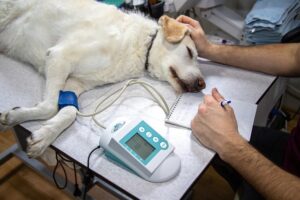Taking your pet to the vet regularly is essential for their health and happiness. But how often should these visits We do our best to provide optimal care for our pets, but we also should not forget that taking your pet to the vet regularly could be as essential as it is in a human life. But how frequently should those visits take place? The answer depends on things such as your pet’s age, health, and the kind of species that they are. This type of schedule will help you determine an ideal vet visit timeline.
Why Regular Vet Visits Matter?
Checking in with your vet routinely (more than once annually) is key for many reasons:
Preventive Care: Regular exams can catch potential health issues before they become a problem.
Vaccinations: It is essential to ensure your pet is up-to-date on all its vaccinations, as this provides protection from life-threatening diseases.
Dental Health: Routine dental visits can prevent tooth decay and gum disease (it is also a potential cause of other health problems)
Nutrition Advice: Your vet will guide you on how to feed your pet and the nutrients needed for a healthy diet.
Overall wellness: Regular exams help to confirm your pet is growing and developing normally, while offering the opportunity for you to address any concerns with your vet.
Recommended Vet Visit Frequency According to Life Stage
1. Puppies and Kittens
Frequency: Every 3-4 weeks until the puppies are approximately 16 weeks old.
Why: Puppies and kittens need multiple visits for shots, worming, and follow up on their growth! These are also good times to talk about spaying or neutering.
2. Adult Pets
Frequency: Once a year.
Why: Having adult pets checked out annually helps you keep them healthy. These visits generally include a health check, vaccinations and dental assessment. Your veterinarian might also suggest that some bloodwork is done to ensure that there are no hidden medical issues present.
3. Senior Pets
Frequency: Every 6 months.
Why: Just like us, our pets are more prone to developing health issues such as arthritis, diabetes and even kidney disease as they get older. These early detection visits are beneficial in managing the state, and medication of your horse at that point in time.
Special Considerations
1. Chronic Health Issues
Frequency: As per vets instruction.
Reason: Pets with chronic conditions—for example, diabetes, heart disease or thyroid problems—should be seen more frequently to ensure that controlled ares under control and to tweak dosages based on changes in condition.
2. Emergency Visits
When: Immediately, as needed.
When: If your pet is sick, injured or vomiting, has diarrhea, a lack of appetite and energy or any other sudden behavior change. Do not be wait for the next forthcoming visit.
How to Make Vet Visits Easier
Tune Up Your Pet: Help your pet to be comfortable with physical handling and biological assessments at home so they are less fearful on the next -vet visit.
Use Carriers: Ensure your carriers for pets is comfy as well as secure on the trip to the vet.
Take a Deep Breath: Pets can feel your anxiety. Calm behavior helps with keeping pets amused.
Treat Your Pet: Give your pets a treat or play with their favorite toy during the visit so they know it will all be okay in the long run.
Conclusion
Veterinarian care is an important part of being a responsible pet owner. If you follow the recommended visit schedule for your pet’s life stage and health status, you can help keep your buddy healthy and happy. Be sure to reach out to your veterinarian for individualized guidance with confidence and concerns regarding your pet’s health.




